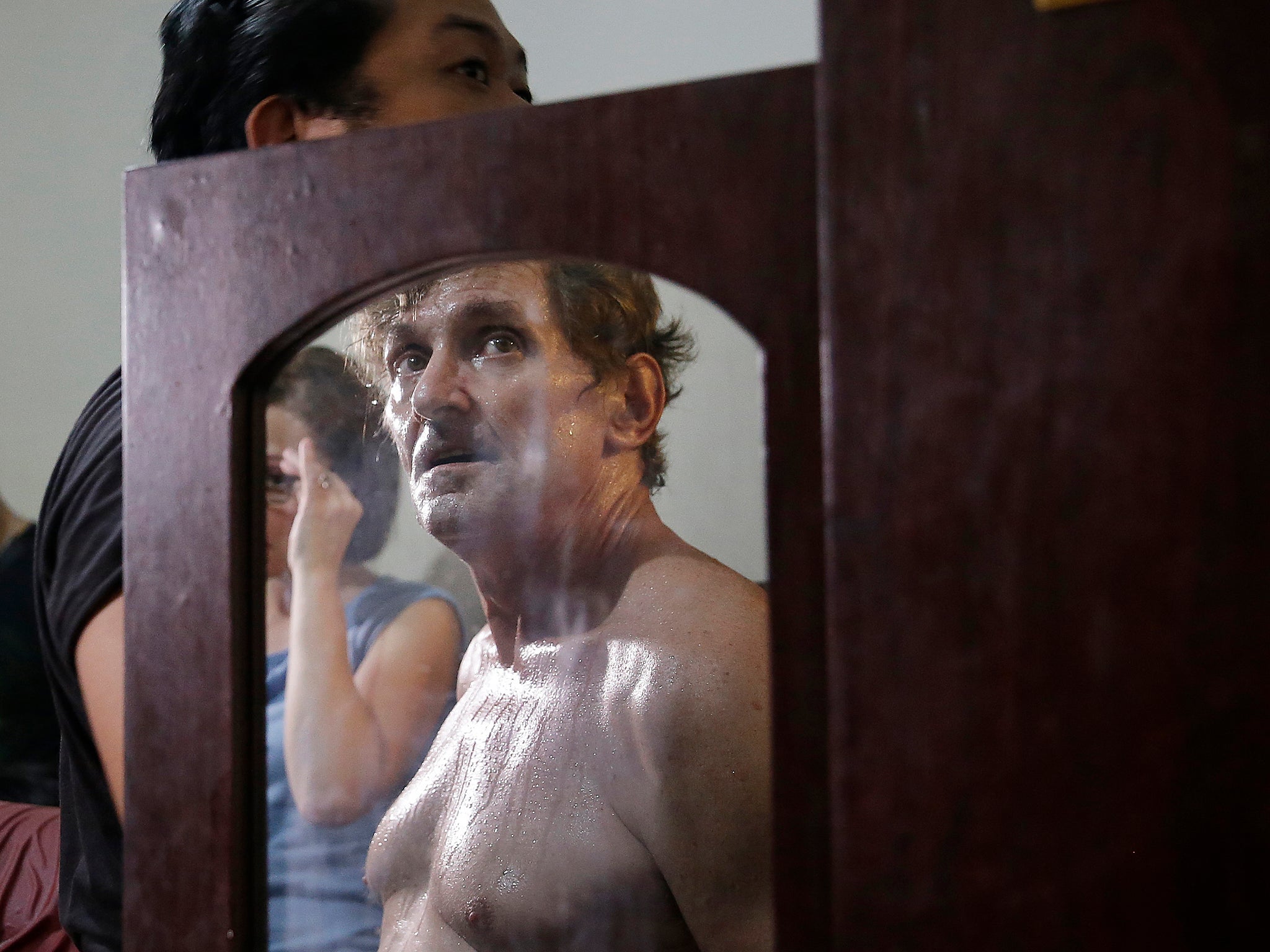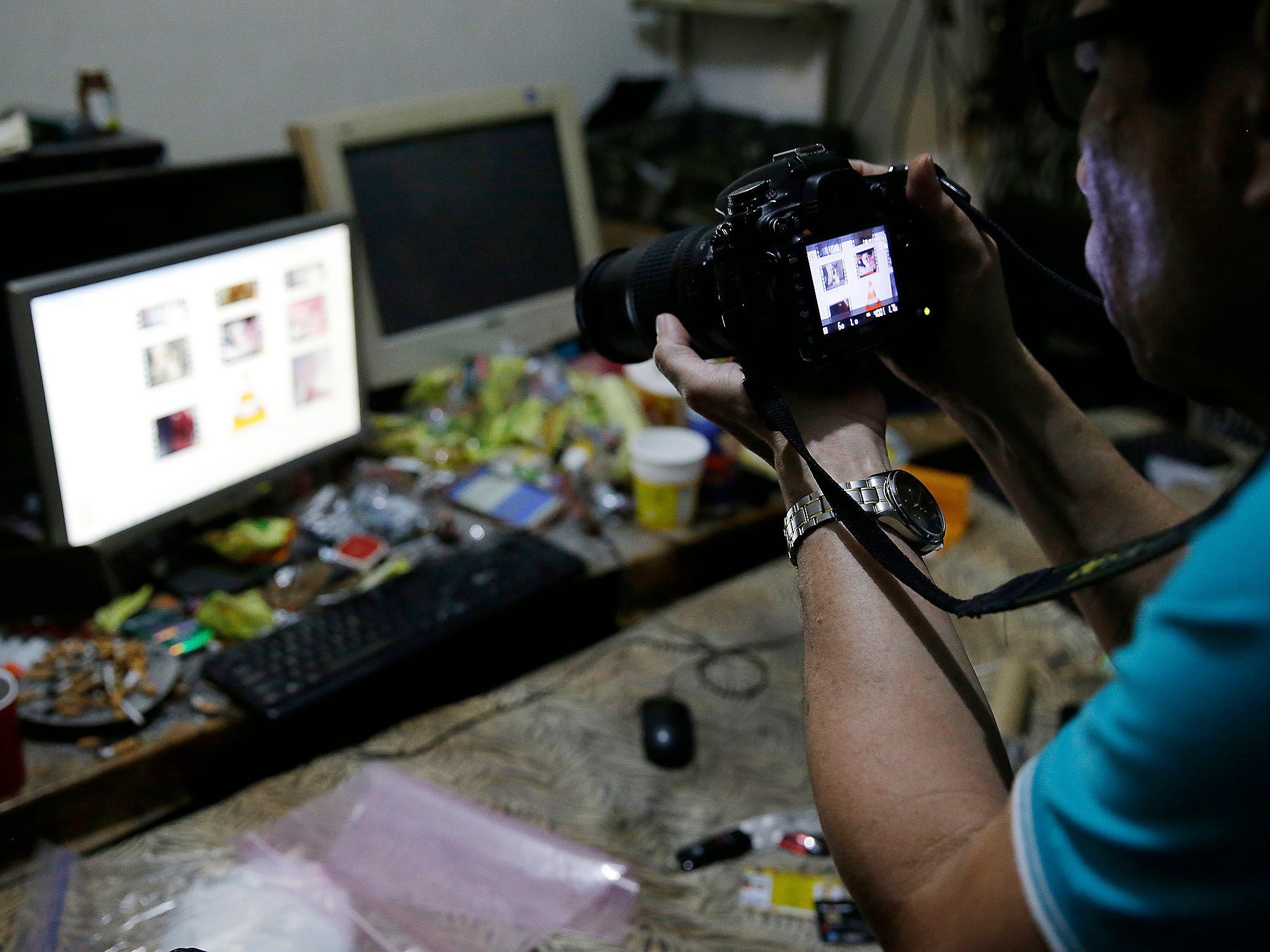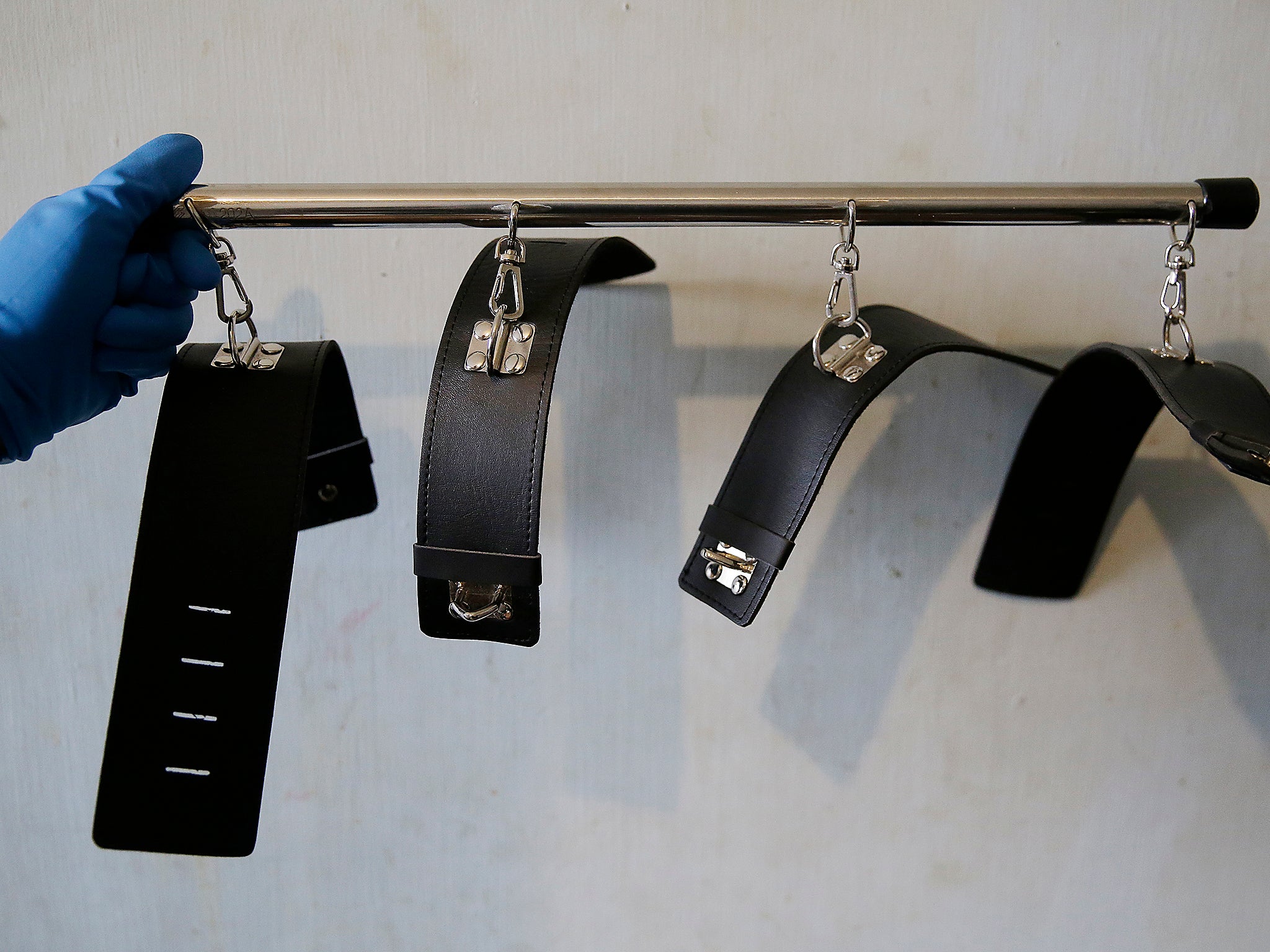David Timothy Deakin: Images capture moment of dramatic raid on home of ‘child sex abuse filmer’ in Philippines
The relatively new crime of webcam sex tourism is spreading rapidly. Police believe the raid on Deakin, a 53-year-old American living in Mabalacat, could be one of their most significant yet
Your support helps us to tell the story
From reproductive rights to climate change to Big Tech, The Independent is on the ground when the story is developing. Whether it's investigating the financials of Elon Musk's pro-Trump PAC or producing our latest documentary, 'The A Word', which shines a light on the American women fighting for reproductive rights, we know how important it is to parse out the facts from the messaging.
At such a critical moment in US history, we need reporters on the ground. Your donation allows us to keep sending journalists to speak to both sides of the story.
The Independent is trusted by Americans across the entire political spectrum. And unlike many other quality news outlets, we choose not to lock Americans out of our reporting and analysis with paywalls. We believe quality journalism should be available to everyone, paid for by those who can afford it.
Your support makes all the difference.The suspected paedophile could see people banging on his front door. But were they neighbours? Cops?
One had letters on her jacket. As David Timothy Deakin googled “What is NBI?” from the laptop on his bed, the Philippines National Bureau of Investigation smashed their way into his alleged cybersex den.
Children's underwear, toddler shoes, cameras, bondage cuffs, meth pipes and stacks of hard drives cluttered the stuffy, two-bedroom townhouse. Pencilled on the wall, someone had scrawled “My Mom and Dad love me.” It is alleged that in his computer were videos and images of young boys and girls engaged in sex acts.
“Why is everyone asking about children coming into my house?” said Deakin, 53, bare-chested and slick with sweat, his breath sour and glasses foggy, his wrists bound with a zip tie.
Deakin’s arrest on 20 April relates to one of the darkest corners of the internet, where paedophiles in the US, Europe and elsewhere pay facilitators in the Philippines to sexually abuse children, even babies, directing their moves through online livestreaming services.
This relatively new crime, webcam sex tourism, is spreading rapidly. The UN describes “alarming growth of new forms of child sexual exploitation online”. The FBI says it’s an epidemic, and that at any given moment, 750,000 child predators are online.
Almost every case stems from the Philippines, where good English speakers, increased internet connections and widespread international cash transfer systems combine with widespread poverty and easy access to vulnerable kids. There have been as many as three busts a week there this spring. The youngest victim ever, rescued a few weeks ago, was an infant, 2 months old. Most are under 12.
This spring The Associated Press watched a raid, rescue and launch of a major investigation that continues to play out on both sides of the world.

“This should serve as a warning,” said NBI anti-human trafficking chief Janet Francisco, who led the case. “We will really put them in jail and they will die in jail.”
Even as police burst in, Deakin was allegedly streaming illicit content through the anonymous Tor network. Agents said he had a webpage open to wipe his phone clean. They tied him up with an iPhone charging cord before he could hit the button.
AP and investigators asked him repeatedly why he had the obscene images allegedly stored on his computer.

“There was no children in front of the cam in my house, not even dressed, as far as I know, not even with their frigging mothers as far as I know,” he said.
But he said the images and videos may have slipped in when he downloaded massive files using BitTorrent, a data tool used legitimately by academics and artists, but also by child pornographers. FBI agents looking for abusers search BitTorrent to spot people sharing exploitive images.
Deakin said he grew up in Peoria, Illinois, in a splintered family. He was licensed as a roofing contractor in his 30s, seasonal work which left winters free; he used the time to study computers. He moved to the Philippines in 2000 for a job setting up internet service providers and installing Blackmagic livestreaming production programmes.
In recent years, Deakin said, he earned $30 (£23) an hour as a systems administrator. But his home was filled with junk, his refrigerator near empty. Stacks of used egg cartons fell from the shelves, and a half-eaten pot of cold rice sat on the stove.

“You know what you've done in this room,” an investigator told Deakin.
She showed him a photo of several children. Shrugging, he said one of them was probably a few doors away with her cousin. Minutes later, two girls, 9 and 11 years old, were rescued by police.
AP did not interview the girls Deakin told police about; victims of such raids need immediate and long-term counselling and care. But in the tranquil garden of a shelter for sexual exploitation survivors about 60 miles south of Deakin's town house, 19-year-old Cassie described her ordeal. AP did not use her whole name to protect her privacy.
The youngest daughter in an impoverished family, Cassie believed the man who came to her village promising a better life if she'd go to the city with him. She was 12.
Within months the man bleached her dark skin, straightened her hair, and began waking her at 4am to work.
“He needed some girl to show her whole body in front of the camera,” she said.
The abuse ended when her older sister found out and went to the police.
Some buyers try to brush off the abuse, saying they're not directly touching the children.
“It’s not just a virtual crime. It is an actual crime,” said human rights attorney Sam Inocencio, who heads International Justice Mission’s Philippines office, which supports local law enforcement with investigators and attorneys. “Online sexual exploitation is possibly the most evil thing that I've seen.”
In 2013, online sex exploitation of children gained global attention after researchers at the Netherlands-based nonprofit Terre des Hommes launched a realistic-looking animation of a 10-year-old Filipino girl named Sweetie. They took the fake girl on chat groups and online forums. Paedophiles swarmed. In 10 weeks, analysts identified 1,000 men in 71 countries who had tried to get illegal images.
The proliferation of crimes, along with new mandatory reporting, led to 8.2 million reports last year to the National Center for Missing and Exploited Children's CyberTipline related to online child sexual exploitation. That compares with 8.3 million reports in the 17 years prior.
Officials at both ends of the abuse agree they need to collaborate to stop it, and last month the US committed $3m (£2.3m).
Deakin's bust turned out to be one of the largest seizures of its kind in the Philippines. His Cheery Mobile Touch HD tablet – which can be wiped clean and reset with a four digit code – had more than 4,000 contacts. One computer had another 13 networked into it, from servers he said were around the world. There were 30 hard drives.
Neighbour Bessie Geronimo was teary-eyed. She'd seen children going in and out. Now, she wondered, could she have intervened?
“Oh, I pity those children,” she said.
Authorities from a village police substation said a housekeeper filed a complaint against Deakin last year: he wasn't paying her, she said, and she was worried about what he was doing with children in the bedroom with the door closed. They visited his house but had no authority for a raid.
“There are many such places,” said the security officer Mike Wood.
AP

Join our commenting forum
Join thought-provoking conversations, follow other Independent readers and see their replies
Comments